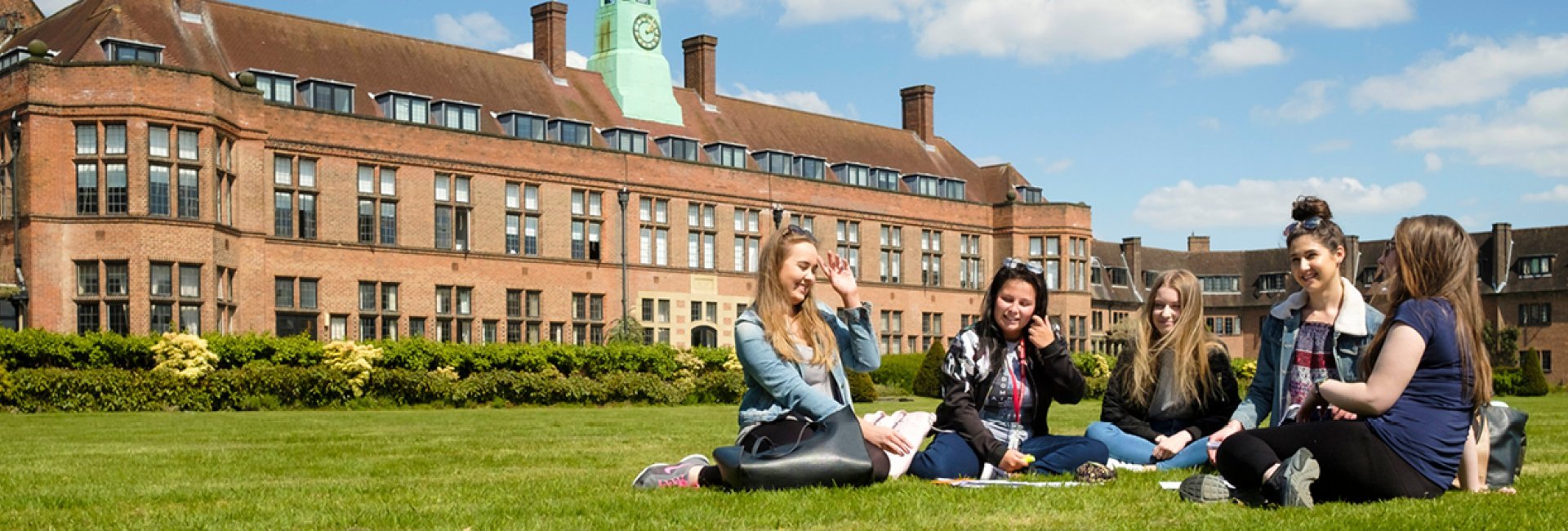Open Day- Saturday 28th June 2025
28 Jun 2025, 09:00
Liverpool, Merseyside

Please note that Combined Honours degrees at Liverpool Hope University are split 50/50. This means both subjects will be studied equally.
Childhood & Youth
Childhood and Youth is an exciting, multidisciplinary subject in which you will explore a range of issues and challenges faced by children and young people in contemporary society, both here in the UK and on a global level. Drawing on key ideas from sociology, psychology, politics, history and geography, the degree examines important questions about children and young people’s development, their life chances and their opportunities for participation in wider society.
Topics studied include how social class, poverty, gender and ethnicity impact upon young people’s lives; how the media influence how children and young people are perceived by adults, and how they view themselves; and why young people take part in risky activities. In examining such questions, you will also explore various political debates and policy initiatives, as well as learning about various ways of researching with children and young people that aim to help them overcome the many challenges that they face.
Psychology
Psychology is the study of people, with a particular focus on individuals. Knowledge and skills cultivated within the discipline enable practitioners to intervene at personal, inter personal and systemic levels in order to enable people to live better lives. Choice of programmes allows students to study a course that reflects their prior interests, lived experience, or future goals. Ethical practice and working within a shared set of values is also important to us; our University is deeply committed to serving the common good. We see Psychology as a discipline with the capacity, and responsibility, to make a positive contribution to how people live in everyday life.
In our teaching of Psychology, we strive to enable our students to grow into constructive citizens who are curious about people, and motivated to make a positive difference to the lives of others. Beyond classroom learning, there are opportunities to enrich your chosen programme of study in a way that will help you in developing your psychological thinking. They include going on a placement, working as a research assistant in a laboratory, travelling to another country as part of Global Hope, or under the Erasmus study abroad scheme.
Liverpool Hope University offers an integrated curriculum. Please go to the course link provided for further information on the topics you will study as part of this degree.
Students are assessed via a number of methods. Please go to the course link provided for further information.
Professionally accredited courses provide industry-wide recognition of the quality of your qualification.

Learn what it's like to study at Liverpool Hope University. From key stats to campus highlights, open days, and more - find everything you need to know here.
The following entry points are available for this course:
International applicants should refer to the International section of our website for further information – www.hope.ac.uk/international/
UCAS Tariff points must come from a minimum of two A Levels (or equivalent). Additional points can be made up from a range of alternative qualifications.
Please contact our External Relations team directly for further information on how you can meet our entry requirements and what other qualifications may be accepted.
t: 0151 291 3111
e: enquiry@hope.ac.uk
| Test | Grade | Additional details |
|---|---|---|
| IELTS (Academic) | 6 | For International students, an overall score of 6.0 is required, with 6.0 in both reading and writing and no individual score lower than 5.5. |
This section shows the range of grades students were previously accepted with - learn more. It is designed to support your research but does not guarantee whether you will or won't get a place. Admissions teams consider various factors, including interviews, subject requirements, and entrance tests. Check all course entry requirements for eligibility.
Students aged 17/18 who applied to this course were offered a place.
See how students with your grades have been accepted onto this course in the past.
Subject Spotlights give you the chance to try a higher education course before you apply. Delivered by the lecturers themselves you will gain insight into what it's like to study the course and give your personal statement a boost.

Operated by the Office for Students
Employment after 15 months (Most common jobs)
Go onto work and study
The number of student respondents and response rates can be important in interpreting the data – it is important to note your experience may be different from theirs. This data will be based on the subject area rather than the specific course. Read more about this data on the Discover Uni website.
| Location | Fee | Year |
|---|---|---|
| EU | £9250 | Year 1 |
| England | £9250 | Year 1 |
| Northern Ireland | £9250 | Year 1 |
| Scotland | £9250 | Year 1 |
| Wales | £9250 | Year 1 |
| Channel Islands | £9250 | Year 1 |
| International | £12500 | Year 1 |
Tuition fee status depends on a number of criteria and varies according to where in the UK you will study. For further guidance on the criteria for home or overseas tuition fees, please refer to the UKCISA website.
Please note, some of our courses may have additional costs. Please visit the course webpage for further information.
Hope Park
Liverpool
L16 9JD
Visit our website Visit our course page
Email:enquiry@hope.ac.uk
Phone:0151 291 3111
Email:psychology@hope.ac.uk
Phone:0151 291 3418
Email:socialscience@hope.ac.uk
Phone:0151 291 3383